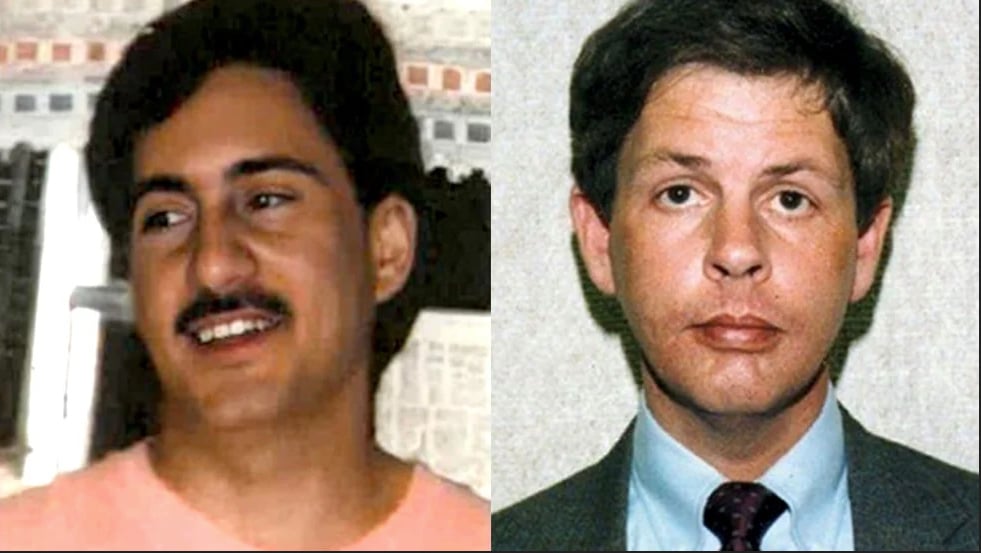
The remains of Jeffrey Jones of Fillmore, Ind., left, who was reported missing in August 1993, have been identified by Indiana investigators. He is the possible 12th victim of Herb Baumeister, right, a wealthy Republican businessman, husband, and father, who is suspected of killing more than 20 young men he met at or around gay bars during the 1980s and ’90s. Photos: Hamilton County Coroner’s Office, left, and Indianapolis Police Department
Indiana investigators searching thousands of bones at the home of deceased suspected serial killer Herb Baumeister announced last week they identified his 12th possible victim.
The remains were identified as Jeffrey Jones of Fillmore, Ind., who was reported missing in August 1993, Hamilton County Coroner Jeff Jellison said.
Jones is the third victim to be identified following a renewed investigation of the remains using DNA technology not available during the initial inquiries in the late 1990s.
“Because many of the remains were found burnt and crushed, this investigation is extremely challenging,” Jellison said in a Facebook May 21. “However, the team of law enforcement and forensic specialists working the case remain committed.”
Herb Baumeister
Baumeister, a wealthy Republican businessman, husband, and father, is suspected of killing more than 20 young men he met at or around gay bars during the 1980s and ’90s.
Baumeister killed himself in 1996 at a public park in Canada after police searched his 18-acre Fox Hollow Farm estate in Westfield outside of Indianapolis and issued a search warrant for his arrest.
Investigators eventually recovered more than 10,000 crushed and charred bone fragments from the estate, and the initial investigation extracted 11 human DNA samples, of which eight, all young men, were identified and matched.
Investigators believe 25 bodies of men Baumeister is suspected of murdering are located on the estate.
A renewed effort that started in 2022 identified multiple new genetic profiles.
Jellison reported that four DNA profiles remain unidentified and will be sent to the FBI for further and more intensive genetic genealogical investigation.
Leading a double life
Investigators have long believed Baumeister was leading a deadly double life. While he appeared to be a loving husband and father and a successful businessman, investigators suspect he cruised local gay bars for young men he’d lure back to his estate and strangle to death.
Investigators also believe Baumeister is the I-70 strangler, a serial killer who murdered 11 young men and boys and dumped their bodies throughout Indiana and Ohio between June 1980 and October 1991. The discovery of bodies from the I-70 Strangler stopped when Baumeister bought his Fox Hollow Farms estate, leading them to believe he continued killing, but used the estate as his new dumping ground.
In 1994, Baumeister’s 13-year-old son Erich found a human skull and a collection of bones while playing at the estate.
Baumeister’s wife Julia said her husband explained the bones were from an old medical skeleton used by his late father, an anesthesiologist, according to a 1996 interview with People.
She also revealed the couple had engaged in sexual intercourse only three times in their marriage and that she had never seen him fully naked.
The couple ran the successful Sav-A-Lot chain of stores, allowing them to move into the exclusive Fox Hollow Farms.
Searching the property
Julie said she forgot about the incident until November of the following year when police asked for permission to search the property as part of their investigation into a string of killings targeting young gay men in the area.
Police said a young man had identified Baumeister as the man who had suffocated him to the brink of death during a sexual tryst at the estate.
The Baumeisters refused the request, but Julie consented while Herbert was out of town in June 1996.
